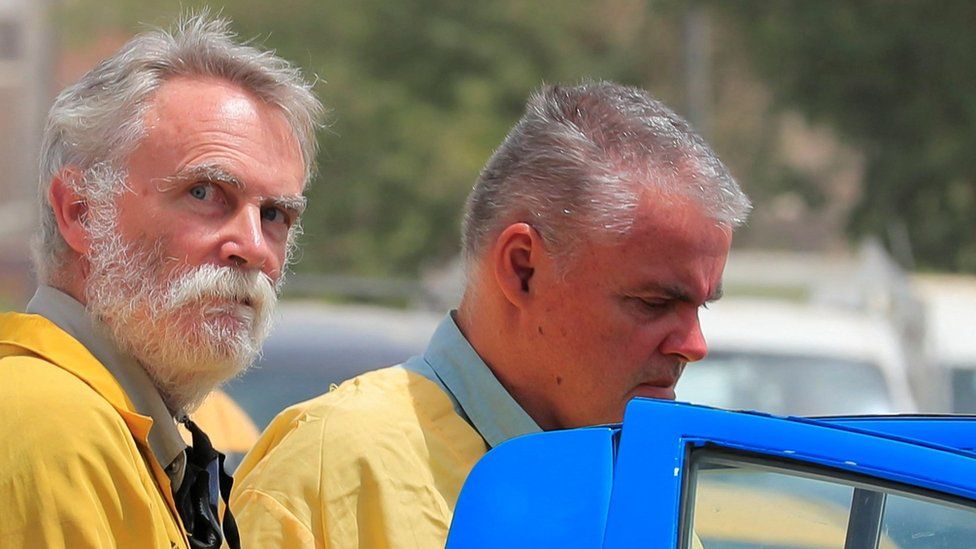
Thaer Saoud, Fitton’s lawyer, told AFP the conviction of Fitton had been overturned by the Court of Cassation. He added “my client will soon be free”.
The 66-year-old Fitton was originally charged in March this year under a 2002 law which dates back to the regime of Saddam Hussein, used to curb rampant antiquities smuggling in the country. Fitton was given 15 years in prison, his alleged crime taking “a few worthless pieces of broken pottery,” according to his daughter.

Fitton was at the ancient site of Eridu in the south of Iraq. He was said to have had the blessing of his tour guide, Geoff Hann, an experienced 85-year-old tour guide who later died in police custody in hospital. Hann was a specialist in Iraqi tours and the group were said to be under the supervision of representatives from Iraq’s State Board of Antiquities and Heritage, as well as local police.
Welcoming the news yesterday, the family of Fitton released a statement saying: “We were informed this morning that the appeals court has decided to quash the verdict of the Felony Court, to fully recognise Jim’s innocence in this case, and to process his immediate release from a 15-year prison sentence in Baghdad.”
His son-in-law, Sam Tasker, added the family were “over the moon”, but remained cautious about the situation.
Fitton was arrested at the airport alongside German tourist Volker Waldmann when flying out of Baghdad airport on 20 March. The shards were discovered in their possession and Iraqi officials said they could be considered archaeological pieces as they date back more than 200 years.
Soud claims the appeal was won due to inconsistencies and errors in the consideration of evidence and application of law.
“The stones were out in the open and still are now,” he says. “They were not fenced and there were no guards. So the first impression my client had was that they were useless stones. Otherwise, they would have been a target for thieves and the government would have put them in a museum.” He adds, “The people from the Ministry of Tourism accompanying the tour didn’t warn them not to take the stones — because they were in fact worthless shards.”
Soud says he also asked the appeals court, “Where are these shards that were confiscated from my client that SBAH deemed to be valuable antiquities? Are they in a museum? If they’re there, then why were they, and still are, left out in the open? If they’re in the garbage, then why charge an innocent person?”
There is no clear release date yet for Fitton, who is still in the general population of the notorious Rusafa prison.

